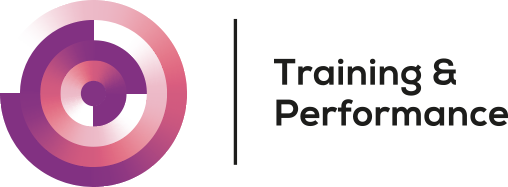O2C Labs Training and Performance mission is to empower Order to Cash and Credit Management professionals at all levels and their organisations.
We are passionate about inspiring talent through expert-led guidance, delivering training through micro learning, on demand, ‘live’ virtual sessions, Workshops and Face to Face in-person training.
We have a vast portfolio of learning products, programmes, and services. Our portfolio enables us to respond quickly and work with clients on projects – building learning that has context and is relevant to the business need. Example Portfolio below:
| Entry Level | Intermediate Level | Advanced Level | Management Level |
| New to the role & refresher | Has some experience | Experienced & Team Leader | Team Leaders/Managers |
| Order to Cash 101 Telephone Collection Credit Control Basics (application processing, legal entities etc) Essential Collection Skills Intro to Risk Assessment Credit Management for Customer Service Teams (basic understanding of credit for support teams) | Advanced Telephone Collection Psychology of Collection Influencing & Negotiating Payment Credit Risk Assessment Intro to Financial Statements | Coaching & Feedback Skills Customer Visits (Trade Credit) Managing Credit Risk Preventing Bad Debts & Debt Recovery Credit Strategy | Managing Change Process Improvement |
How we work
Our method is simple. We partner and listen first. We want to understand pain points, what teams need to be better at and most importantly, skill level. We then create solutions that are specifically designed for an organisation. All with a focus on boosting Order to cash performance and supporting change.
Pam Thomas PGCE, FCICM Senior Partner O2C Labs, gives an insight into Training and Performance trends and objectives
Technology has changed the way we work and deal with everyday tasks but Credit Management is one of the few industries where direct contact with both internal and external customers can mean the difference between success or failure to collect hard earned sales revenue. Education and upskilling staff is vital for organisations to keep ahead of the competition and in my role as a training and development specialist I design and deliver training courses to a range of different industry sectors, shared service centres and global organisations to assist in developing their teams to achieve their goals.
As Credit Professionals we work alongside stakeholders, especially the sales team, providing them with information that may impact business in a negative or positive way. This doesn’t happen by chance, our role in Credit Management requires us to build successful and productive relationships and to some extent, trust. Trust has to be earned and demonstrated although I recall being reminded daily by certain sales people “don’t do anything to upset the customer”! So much for trust! I’m sure this will resonate with many of you reading this article.
What do successful Credit & Collection teams have in common?
Good communication and the relationship with internal and external customers. Developing credit teams to become high performing requires motivation and promotion of ‘can do’ attitude. Training can really help this by encouraging the right behaviours expected to bring home the cash e.g.:
- excellent communication skills to build relationships
- working with sales to understand both business and customer issues – risk vs reward
- being fair minded in their decision making regarding escalation
- communicating concerns regarding the customers’ ability to pay
Building relationships and having emotional intelligence – can we train people to have this?
Learning about yourself to develop better communication and being more aware of the impact our behaviour has upon others is essential in any role and indeed, life in general.
Emotional Intelligence is the ability to understand, manage your own emotions in positive ways to relieve stress, communicate effectively, empathise with others, overcome challenges and defuse conflict. One of the training courses I love to run is “Psychology of Collection” which concentrates on this very subject. During the training I use ‘personality type’ quizzes and both practical and fun exercises to demonstrate why people do the things they do – especially when it comes to money or sales revenue.
What training topic is most popular?
I am frequently asked to deliver Collection Training, but not just ‘off the shelf’ training. Every company is different – organisational structure, credit policy, competency levels, legislative requirements, cross-cultural consideration and working procedures, all have to be taken into account when designing an effective training programme.
Collection Skills Training – basic stuff?
No matter how experienced a team is, there is always room for improvement. Revitalising existing skills or to kick start collection campaigns and to remind teams to use the telephone more often are good examples. How to prioritise collections, how to turn around negative situations using positive language, increase ability to deal with difficult debts, assertiveness and building confidence are all essential skills.
Face to face training or Virtual – which is better?
This is an ongoing debate in the learning and development world! The pandemic prompted a major shift to digital / virtual learning, driven largely by necessity. The growth of digital working has, however, also brought digital fatigue.
Face to face (F2F) training works better for some topics than others especially when developing soft skills that need to be practised.
Whereas virtual training (e learning, webinars etc) is good for delivering information to a wider audience and consistent content.
When it comes down to Order to Cash and Collections training, I deliver by all methods but most enjoyable is F2F. I can immediately see body language, answer any concerns, I can facilitate hands on learning, sharing of information, experience and most importantly get feedback as to how the skills will be used.
Choosing the best delivery for individuals and Teams
1. The aim of training
Choose your appropriate training delivery method based on the aim of training. Refresher training is suited to virtual delivery and can be made more interesting with interaction, quizzes.
2. Who is it for?
Who is being trained and what are their needs? Can information be delivered in bite-sized pieces? How difficult would it be to get everyone in a room together?
3. Consider the timeline
The urgency of training objectives plays a significant role in deciding your appropriate training delivery method. Consider how quickly employees need to learn this information. Does this knowledge need to be implemented tomorrow, or can it be disseminated over time? Different training delivery methods will be suited for these differing needs.
For further information and any questions, please contact me:
Pam Thomas PGCE FCICM
February 1st, 2024







